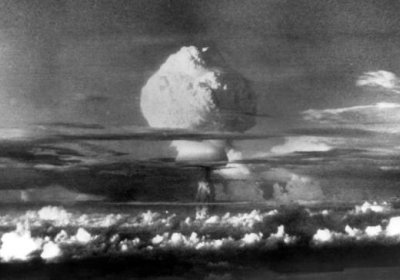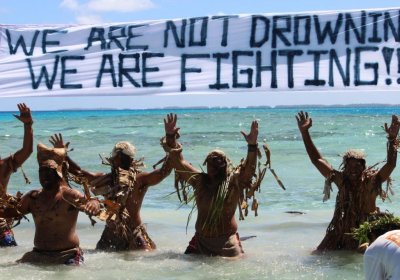Socialist Alliance is calling for a 50% cut in military expenditure and to use the $28 billion to address the urgent housing, cost-of-living and climate crises, argues Peter Boyle.
Pacific Islands
There has been a flurry of visits by United States' officials to the Pacific over the past year in a bid to shore up imperial hegemony in the region. Binoy Kampmark reports.
Prime Minister Anthony Albanese has promised to renew Australia’s standing in the region at the Pacific Islands Forum in Fiji. However, Peter Boyle argues it's not looking good given the country's record and projections on climate and militarisation.
When Tuvaluan Prime Minister Enele Sosene Sopoaga used his United Nations address on September 27 to warn that, for the Pacific, “climate change is a weapon of mass destruction”, most of the seats were vacant.
Samoan Prime Minister Tuilaepa Sailele Malielegaoi made an impassioned plea for the big powers in the region to stop bullying small Pacific Island nations just days before the 49th Pacific Islands Forum (PIF) was held in Nauru over September 3-6.
“Any leader of any country who believes that there is no climate change, I think he ought to be taken to mental confinement. He is utterly stupid”, Samoan Prime Minister Tuilaepa Sailele Malielegaoi said on August 31.
Nobody better reflects the military and political elites’ cavalier attitude to nuclear weapons than Sir William Penney, the architect of Britain’s hydrogen bomb program.
Asked how destructive the new weapons were in meetings in 1961 between US Democrat President John F. Kennedy and British Conservative Prime Minister Harold Macmillan, Penney casually answered by saying: “It would take twelve to destroy Australia, Britain five or six, say seven or eight, and I’ll have another gin and tonic, if you would be so kind”.
There are countless reports from NGOs, scientists and government agencies on climate refugees.
For example, last year more than 2 million people had to gather their possessions and flee as floods hit the Yangtze River in China. But, despite this becoming one of the world’s greatest issues there is very little activism around climate refugees in the developed world.
Global warming has already increased the risk of major disruptions to Pacific rainfall, according to our research published in Nature Communications. The risk will continue to rise over coming decades, even if global warming during the 21st century is restricted to 2℃elcius.









